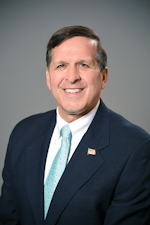The economics of dentistry have changed. Increases in overhead are offsetting increases in profitability. Even though some practices are in increasing practice production, they are finding that their profit is lower.
This dynamic will impact many dentists’ retirement timeline. The last generation had a targeted and achievable retirement age of approximately 62. Today that number is closer to 72 and will continue to rise. Reasons include: the greater use of student loans, the cost of practice ownership and the debt required with purchasing a practice or buying in, increased overhead in categories such a staff compensation, and lower reimbursements from insurance companies.
What is the key for practices to overcome this pressure on profit? It is the 30%–50% growth potential contained within most practices. This level of growth will offset overhead increases and create additional profit and savings for doctors allowing them to improve the trajectory toward reaching financial independence. Achieving this growth will require new systems, improved training for the team, and accountability from the team to implement the systems. When a practice is run efficiently from an operational standpoint, the growth potential is huge.
- Step-by-step systems are the guide for team members to know exactly what to do and how to do it for every task in the practice. This is what the best companies do and how the best businesses operate.
- Build a world class team, focusing on the word “build.” It is difficult to hire a world class team, but with the right leadership, positive environment, defined culture and daily motivation a team can easily become great. This comes down to leadership training for the dentist, which is so important and yet often overlooked.
- Training is no longer a once-in-a-while activity. Nor is it one-and-done when a new technology is purchased. The world and dentistry are changing so fast that team members must receive regular training to excel in their work. Training can come in the form of articles, books, webinars, seminars, or consulting. Good leaders now need to be thinking about this on a daily basis. Consider asking every team member, “What did you learn today?” If the answer is nothing act immediately and put into place a structure where team members can learn what they need to know every day to do a superior job.
Practices that follow these protocols will excel, be profitable and shorten the timeframe it takes for owners to reach financial independence.
Editor's note: This article originally appeared in DE Weekend, the newsletter that will elevate your Sunday mornings with practical and innovative practice management and clinical content from experts across the field. Subscribe here.









